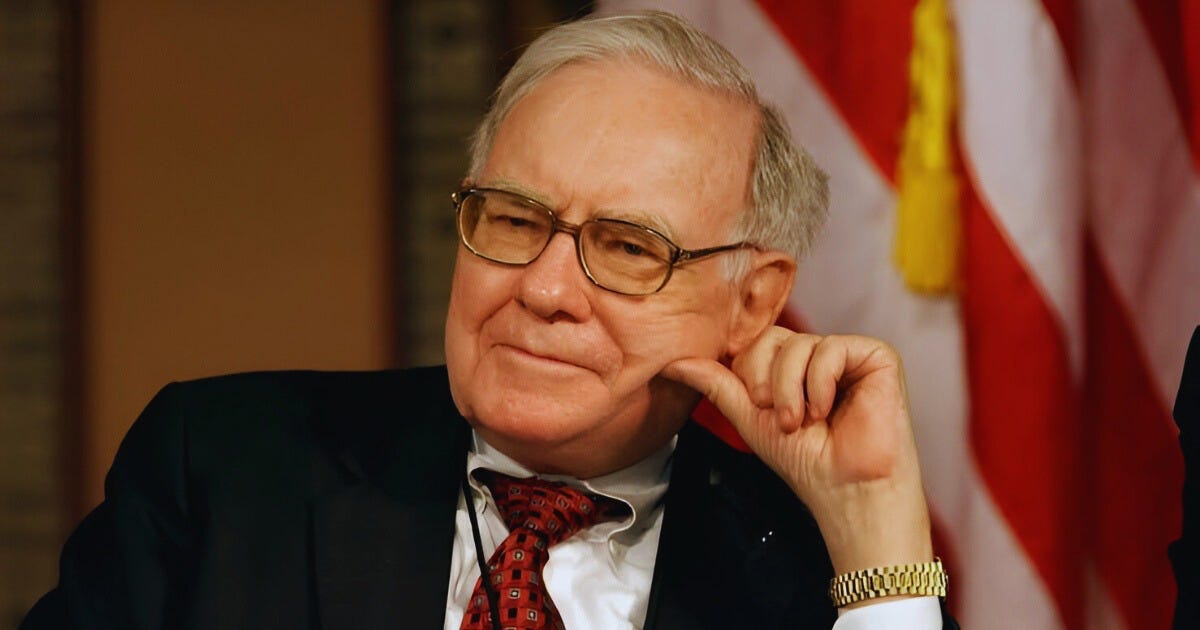The One Pick
Warren Buffett is stepping down.
It’s not shocking. He’s 94. The plan has been in place for years. But still, the moment carries weight. Not because of what’s next, but because of what’s left.
Buffett built an empire of over 70 companies and more than 50 stock positions.
He made insurance sexy. He turned Omaha into Mecca. He taught generations to buy what you understand and hold what you believe. But in the end, Berkshire Hathaway’s defining bet wasn’t on Coca-Cola or GEICO or railroads or cash flow. It was Apple.
In 2016, Berkshire bought Apple. Not when it was unloved. Not when it was cheap. Not even when it was struggling.
Apple was already the largest company in the world. Worth $600 billion. Yet Buffett, the man famous for avoiding tech, bought in. And he held.
That single decision now defines his final act.
Between 2016 and 2023, Berkshire’s return with Apple: 174%. Without Apple: 142%.
The S&P 500 did 168%.
Zoom out to 20 years — the long arc that supposedly reveals true investing skill — and the picture sharpens. With Apple, Berkshire matched the market. Without it, it lagged.
All those decades. All those deals. And the margin of difference comes down to one position in one company made less than ten years ago.
So what are we really looking at?
Not just a man stepping down. Not just a firm full of value stocks getting bailed out by a phone company. We’re looking at a kind of humility that’s easy to miss.
Buffett never pretended that the past guaranteed him a future. He didn’t chase obscure ideas to prove his genius. He didn’t build a hedge fund to juice returns. He bought the most obvious company in the world — and trusted it.
There’s a quiet lesson here about how legacy actually works.
It’s not the complexity of the system you build. It’s the clarity of the judgment you exercise when it counts.
All it takes is one good choice. If you’re alive to make it.





